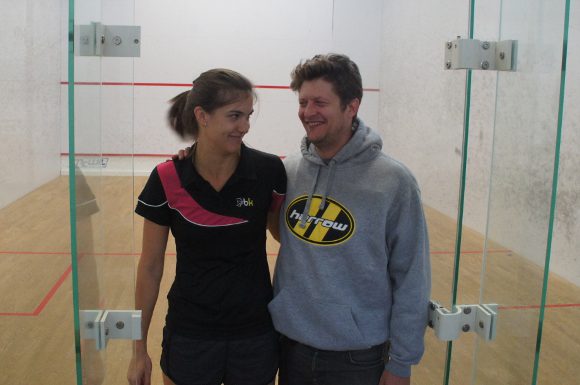With the interview out of the way, Sam Cornett invites an out-of-shape reporter to a pick-up game of squash and laughs as he chases down impossibly hard-to-get shots around the deceptively small court.
Sadistic streak aside, Cornett is pretty friendly and seems like a regular 22-year-old, not giving any hints she’s actually Canada’s top-ranked female squash player.
Reminded of the International Olympic Committee’s decision to restore wrestling to the Games while denying squash a spot, Cornett rolls her eyes and explains some of the things that make squash such a great sport.
“I love the fact that it’s often been compared to chess,” says Cornett, at the National Squash Academy in Toronto, where she trains. “You’re watching squash and you can see the strategy unfold based on each player, it’s so different for every player.
“It’s a fun way to, in 45 minutes, get a kick-ass workout. You’re going to have a nice bum and everyone loves squash that’s tried it. I’ve never brought someone to the club that hasn’t enjoyed it.”
The NSA is located in Downsview Park, the former site of an army base and where de Havilland used to make airplanes.
Run by Jonathon Power, the former world No. 1 and greatest squash player to ever come out of North America, the NSA is a public squash club with 10 courts that seeks to make the sport accessible to everyone.
“It’s a big reason why we built this centre,” says Power, 39, whose hair is vaguely reminiscent of Jacob Two-Two’s. “Traditionally, it’s been private clubs where you have to be a member, there’s not a lot of places where you can pay as you play and find out about it.”
Affordability is a big reason why squash is popular around the world. Countries that aren’t “traditional” Olympic nations, such as Malaysia, Egypt, India, and Pakistan, have strong squash programs.
According to a brochure created by Squash 2020, a campaign that seeks inclusion for the sport at the 2020 Summer Games in Tokyo, squash is played on over 50,000 courts by men and women in 185 countries.
There’s no reason squash shouldn’t be included in the Olympics, says Power.
“Everybody has their reasons, it’s political, it has nothing to do with the sport,” says Power. “The sport is ideal for the Olympics, it was made for the Olympics.”
It is important to note that squash has no quarrel with wrestling, which beat out squash along with a joint bid from softball and baseball for inclusion in the 2020 Games, though the general consensus is that wrestling should never have lost its spot in the first place.
“Wrestling is the best sport in the Olympics, period,” says Power. “It’s the original sport, it’s the toughest sport.”
Asked about any possible arguments against the inclusion of squash in the Olympics, Cornett can only come up with one, and it’s not a strong one.
“I’ve heard people say it’s boring,” she says. “My response to that is to try and understand the sport more. If I watch hockey and I don’t know the rules, you don’t really understand and you’re not really involved in the game.
“Learn the rules, then you’ll understand. Try the sport, and you’ll understand the excitement.”

